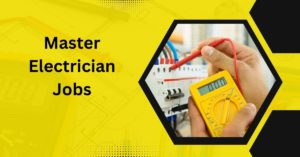If you’ve ever wondered what it takes to become a maintenance electrician, you’ve come to the right place. From job responsibilities to career growth opportunities, we’ll explore everything you need to know to become successful in this crucial role. Whether you’re just starting out or considering a career change, becoming a maintenance electrician can be both fulfilling and financially rewarding. Read on to uncover what this path offers, the skills you’ll need, and why it’s an ideal career choice.

What Is a Maintenance Electrician?
Table of Contents
A maintenance electrician is a professional who installs, maintains, and repairs electrical systems in industrial, commercial, or residential environments. These electricians ensure that all electrical components are in good working condition and meet safety regulations. Unlike construction electricians who primarily focus on new installations, maintenance electricians keep everything running smoothly, often troubleshooting and fixing issues before they turn into major problems.
Responsibilities of a Maintenance Electrician
Maintenance electricians handle a variety of duties that are essential to keeping systems operational. Some of their core responsibilities include:
- Routine Maintenance: Ensuring all electrical systems are functioning correctly by performing routine checks.
- Troubleshooting and Repairs: Identifying and solving electrical problems.
- Equipment Testing: Using diagnostic tools to test and ensure electrical components are in working order.
- Safety Compliance: Ensuring that all systems comply with local safety codes.
- Record Keeping: Documenting maintenance activities and any repairs conducted to provide an accurate maintenance history.
If you enjoy working with your hands, solving complex problems, and having job stability, a career as a maintenance electrician can be quite rewarding.
Why Pursue a Career as a Maintenance Electrician?
The demand for skilled maintenance electricians is constantly growing, thanks to the need for companies to keep their facilities up and running smoothly. Here are some key benefits of pursuing this career:
- Job Stability: Electrical systems are crucial for any business, which makes this profession recession-proof.
- High Earning Potential: Maintenance electricians often earn higher wages compared to other trades.
- Skill Development: This role requires continuous learning, making it perfect for those who enjoy a challenging and dynamic work environment.
Skills Required to Become a Maintenance Electrician
Becoming a successful maintenance electrician requires both technical skills and soft skills. Some of the key skills include:
1. Technical Knowledge
You need a solid understanding of electrical systems, control circuits, and safety protocols. A background in mathematics and physics will also come in handy, as you’ll be dealing with calculations for current, voltage, and resistance.
2. Problem-Solving Skills
The ability to troubleshoot effectively is a must. You should be able to analyze problems, come up with potential solutions, and then implement the right one.
3. Communication
Working as a maintenance electrician involves interacting with clients and team members. Good communication is essential to ensure that everyone understands the issues and solutions being implemented.
4. Attention to Detail
Since electricity can be dangerous, attention to detail is crucial. Making small errors can lead to significant problems, so it’s important to work with precision.
Typical Work Environment for a Maintenance Electrician

The work environment of a maintenance electrician can vary based on the type of facility. Most of the time, they work indoors, though some tasks might require outdoor activities. The job often includes working with heavy machinery, tools, and in confined spaces. Therefore, being comfortable in different environments is important.
Safety Considerations
Safety is of utmost importance. Maintenance electricians must follow stringent safety procedures to avoid electrical shocks and other hazards. It’s essential to wear personal protective equipment (PPE) and follow protocols to prevent accidents.
How to Become a Maintenance Electrician
If you are considering becoming a maintenance electrician, here are the steps you typically need to follow:
- Education: Most maintenance electricians start with a high school diploma or GED, focusing on subjects like mathematics, physics, and electrical technology.
- Apprenticeship: After high school, you’ll need to complete an apprenticeship program, which usually lasts 4-5 years. During this time, you’ll learn the practical skills necessary to become a professional.
- Licensing and Certification: Depending on your location, you may need to obtain a license to work as a maintenance electrician. Certifications like the National Electrical Code (NEC) compliance are also beneficial.
- On-the-Job Experience: Once certified, gaining experience is crucial. Many maintenance electricians continue their education to specialize in specific systems or industries.
Tools and Equipment Used by Maintenance Electricians
Maintenance electricians use a variety of tools in their daily tasks. These tools include:
- Multimeters: To measure voltage, current, and resistance.
- Insulated Hand Tools: To ensure safety when working on live wires.
- Oscilloscopes: For diagnosing more complex issues involving waveforms.
- Cable Cutters and Crimpers: For managing wiring and installations.
Having the right tools is essential for performing efficient repairs and maintenance.
Salary Expectations for a Maintenance Electrician
The salary of a maintenance electrician can vary based on experience, location, and specialization. However, in general, this profession offers competitive pay. The median annual salary for maintenance electricians in the U.S. is approximately $60,000, with more experienced professionals earning upwards of $75,000. In areas with a higher cost of living or greater demand, the pay can be significantly higher.
Career Growth Opportunities

Once you gain experience as a maintenance electrician, there are numerous paths for advancement. You could become:
- Lead Electrician: Overseeing a team of electricians.
- Maintenance Supervisor: Managing the maintenance of all systems within a facility.
- Electrical Engineer: With additional education, you could transition into engineering roles.
There are also opportunities to specialize in areas like programmable logic controllers (PLCs), automation, and robotics, which can further increase your earning potential.
FAQs About Maintenance Electricians
1. What is the difference between a maintenance electrician and an industrial electrician?
While both roles involve working with electrical systems, maintenance electricians focus on keeping existing systems in good working order, whereas industrial electricians work primarily in industrial settings on large-scale installations and maintenance projects.
2. How long does it take to become a maintenance electrician?
Typically, it takes about 4-5 years, including apprenticeship training, to become a fully qualified maintenance electrician.
3. Is being a maintenance electrician a good career?
Absolutely! With job stability, high demand, and opportunities for growth, being a maintenance electrician can be a very rewarding career.
The Future of Maintenance Electricians
As industries continue to rely on automated systems and smart technology, the role of the maintenance electrician will continue to evolve. Electricians with skills in automation, PLCs, and advanced troubleshooting will be highly sought after. Therefore, investing in ongoing education and training can be extremely beneficial for anyone in this field.
Conclusion: Is a Career as a Maintenance Electrician Right for You?
Choosing to become a maintenance electrician can lead to a stable and rewarding career. With the growing demand for skilled professionals, this path offers an excellent opportunity for individuals who are interested in hands-on work and problem-solving. Whether you’re looking to start a new career or switch industries, becoming a maintenance electrician can offer the kind of challenge and satisfaction that many people seek in their professional lives.
If you’re detail-oriented, enjoy working with electrical systems, and want a career with numerous opportunities for growth, then becoming a maintenance electrician could be the perfect choice for you.



